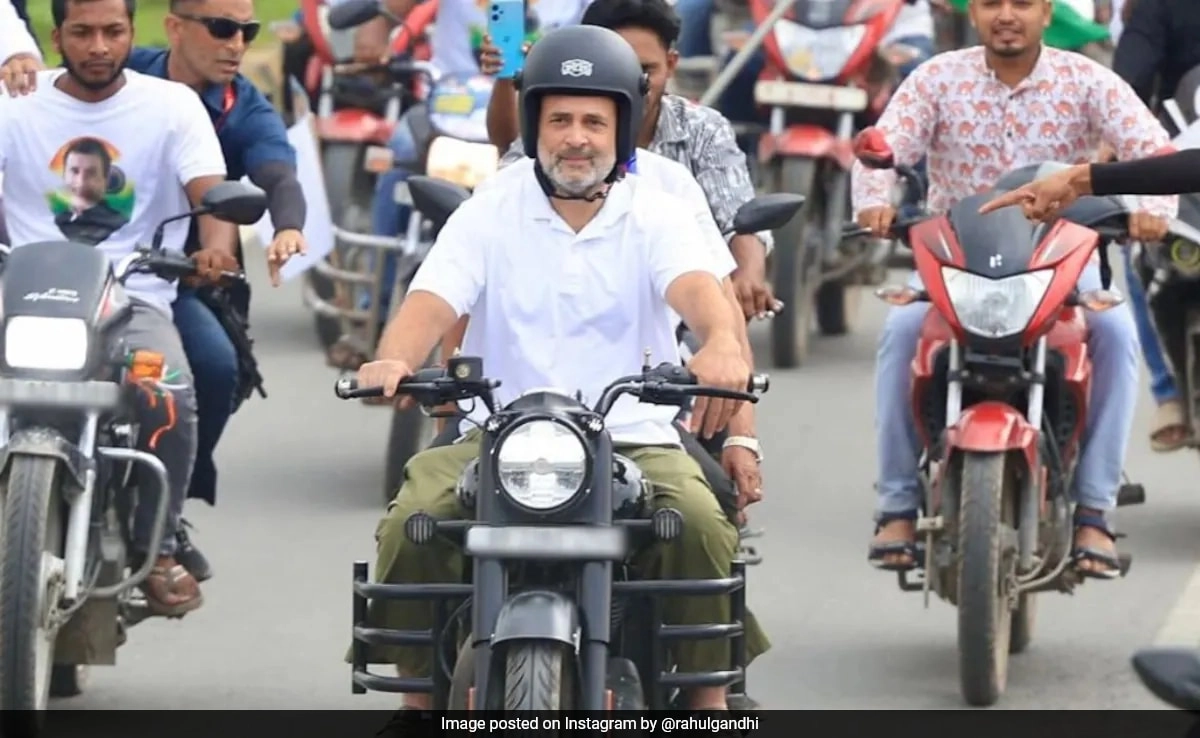In a recent public address, Rahul Gandhi made a curious analogy comparing the weight of cars to that of bicycles, sparking a lively exchange of opinions among political commentators and social media users. Gandhi’s remarks highlighted the fundamental differences in design and purpose between the two modes of transportation. Cars, with their robust structures, are engineered for safety, comfort, and the ability to transport multiple passengers and goods. In contrast, bicycles are lightweight and designed for individual use, prioritizing efficiency and maneuverability. This distinction underscores the inherent differences in engineering and functionality, which can often be overlooked in broader discussions about transportation and mobility.
The BJP quickly seized on Gandhi’s comments, using them as an opportunity to criticize his understanding of basic concepts. Party representatives took to various platforms, questioning how a leader of Gandhi’s stature could make such a simplistic comparison. They argued that the differences in weight between cars and bikes are obvious and serve as a metaphor for the larger disparities in governance and economic policies between the two parties. This back-and-forth illustrates the intense scrutiny and rivalry that exists in Indian politics, where even the most innocuous statements can be magnified and weaponized for political gain.
Moreover, the debate surrounding the weight of cars versus bikes reflects broader societal issues, such as urban planning, environmental concerns, and transportation infrastructure. As cities grapple with increasing traffic congestion and pollution, the push for greener alternatives like bicycles is gaining momentum. However, the reliance on cars continues to dominate, raising questions about sustainability and future mobility solutions. The contrast between the two forms of transport serves as a microcosm of the larger challenges faced by urban environments today, highlighting the need for innovative policies that balance convenience with ecological responsibility.
In summary, while Rahul Gandhi’s comments may have sparked controversy and provided fodder for political rivalry, they also open up a much-needed discussion about transportation dynamics in contemporary society. The ensuing dialogue serves to remind us that the choices we make in our transportation systems have far-reaching implications for our environment, economy, and overall quality of life. As the conversation continues, it is crucial for leaders and citizens alike to engage thoughtfully with these issues and work towards solutions that promote a sustainable and efficient transportation future.




